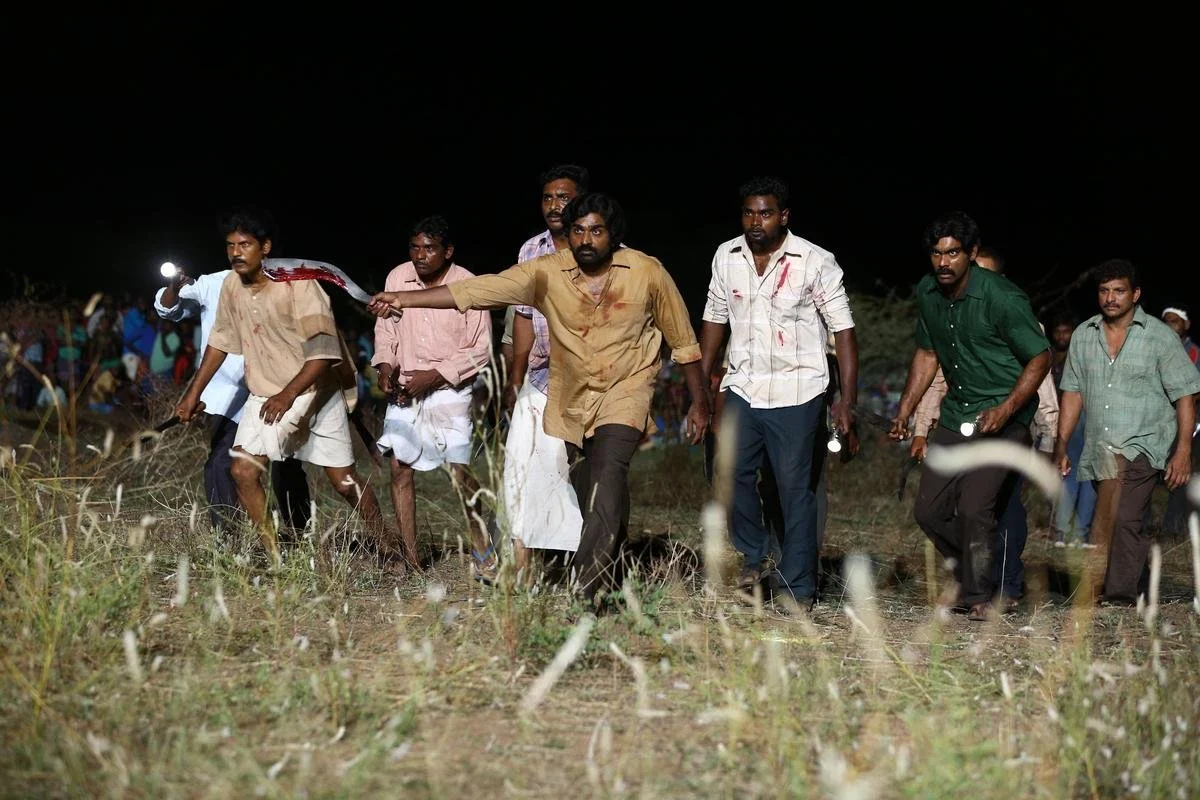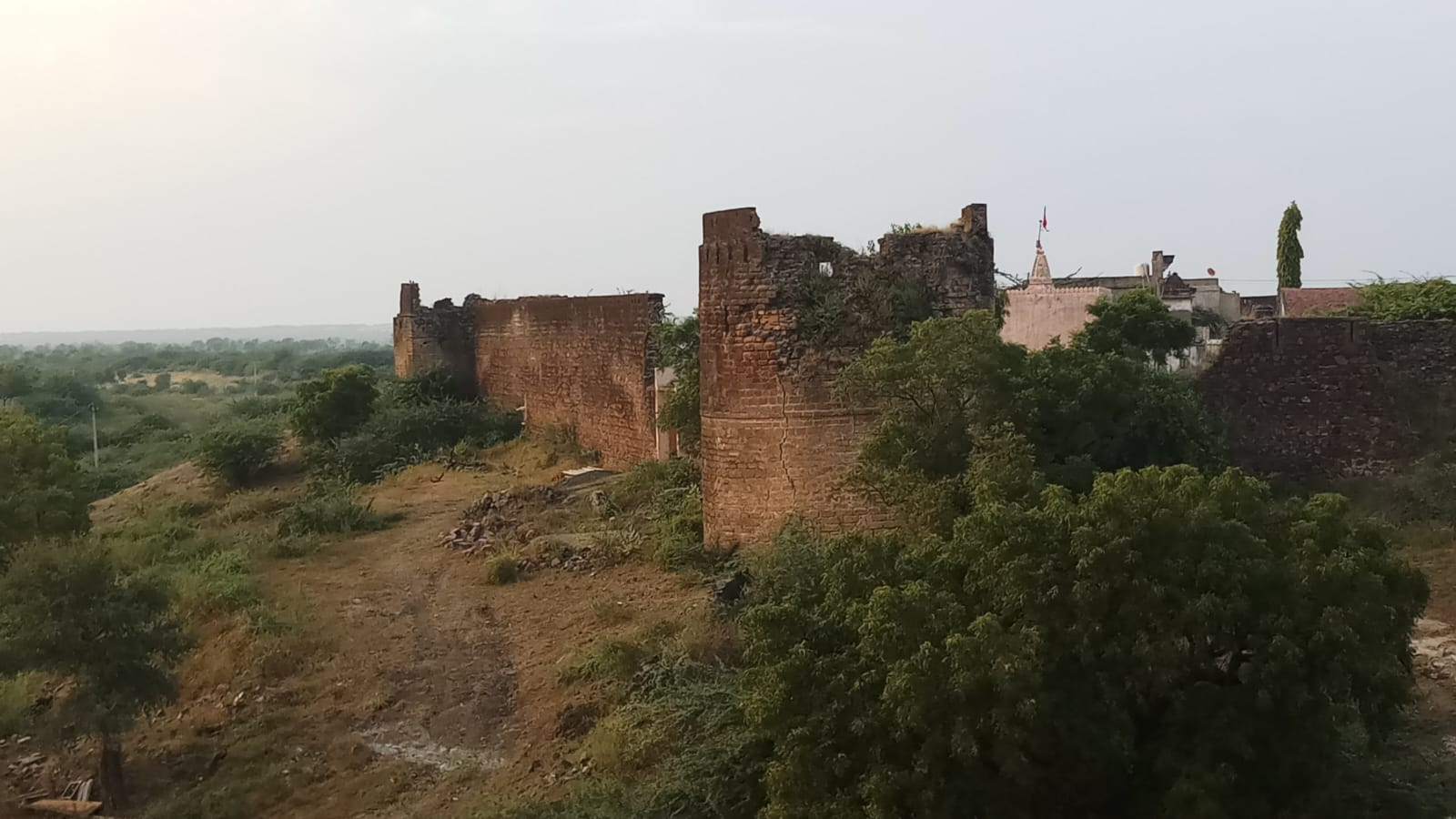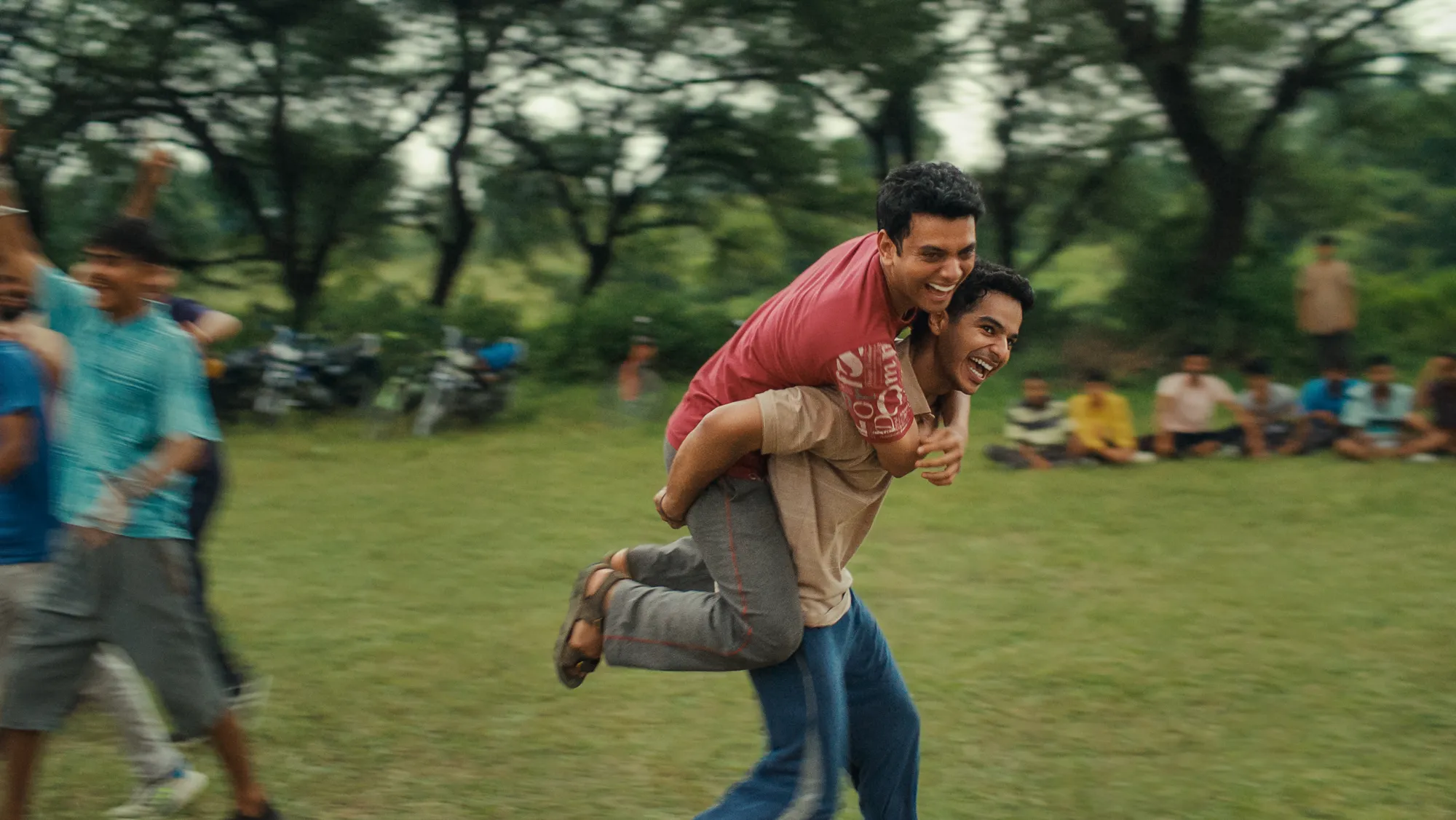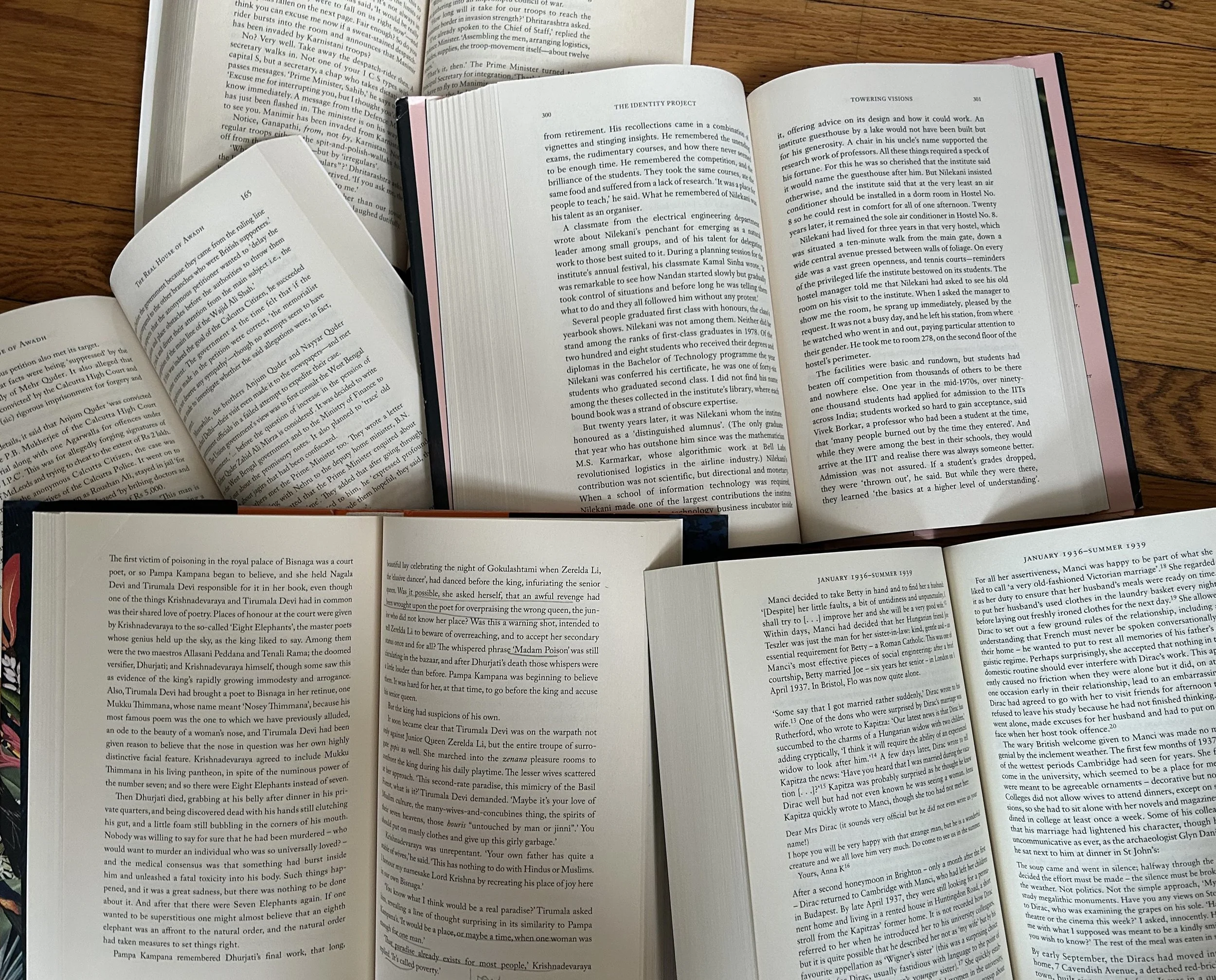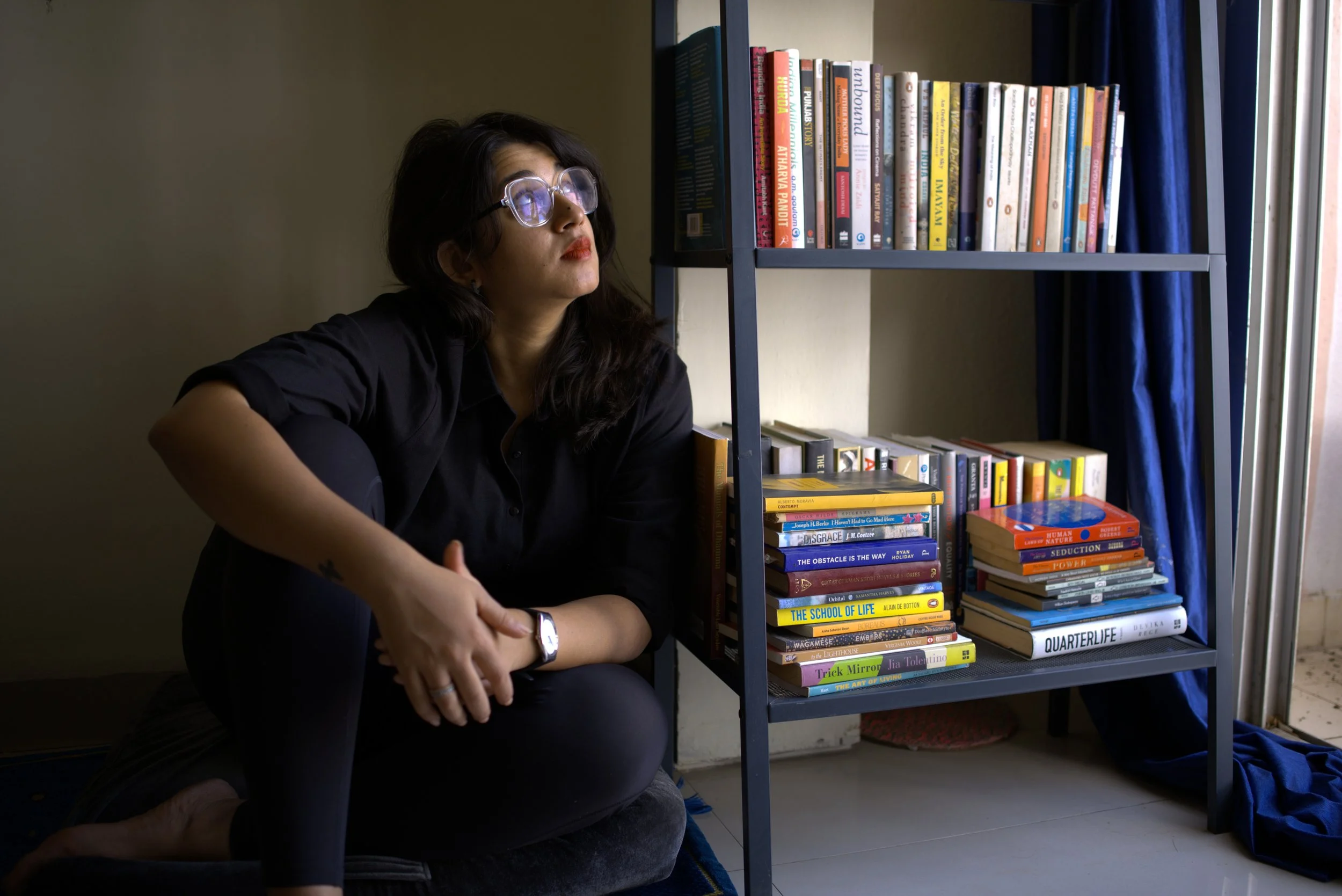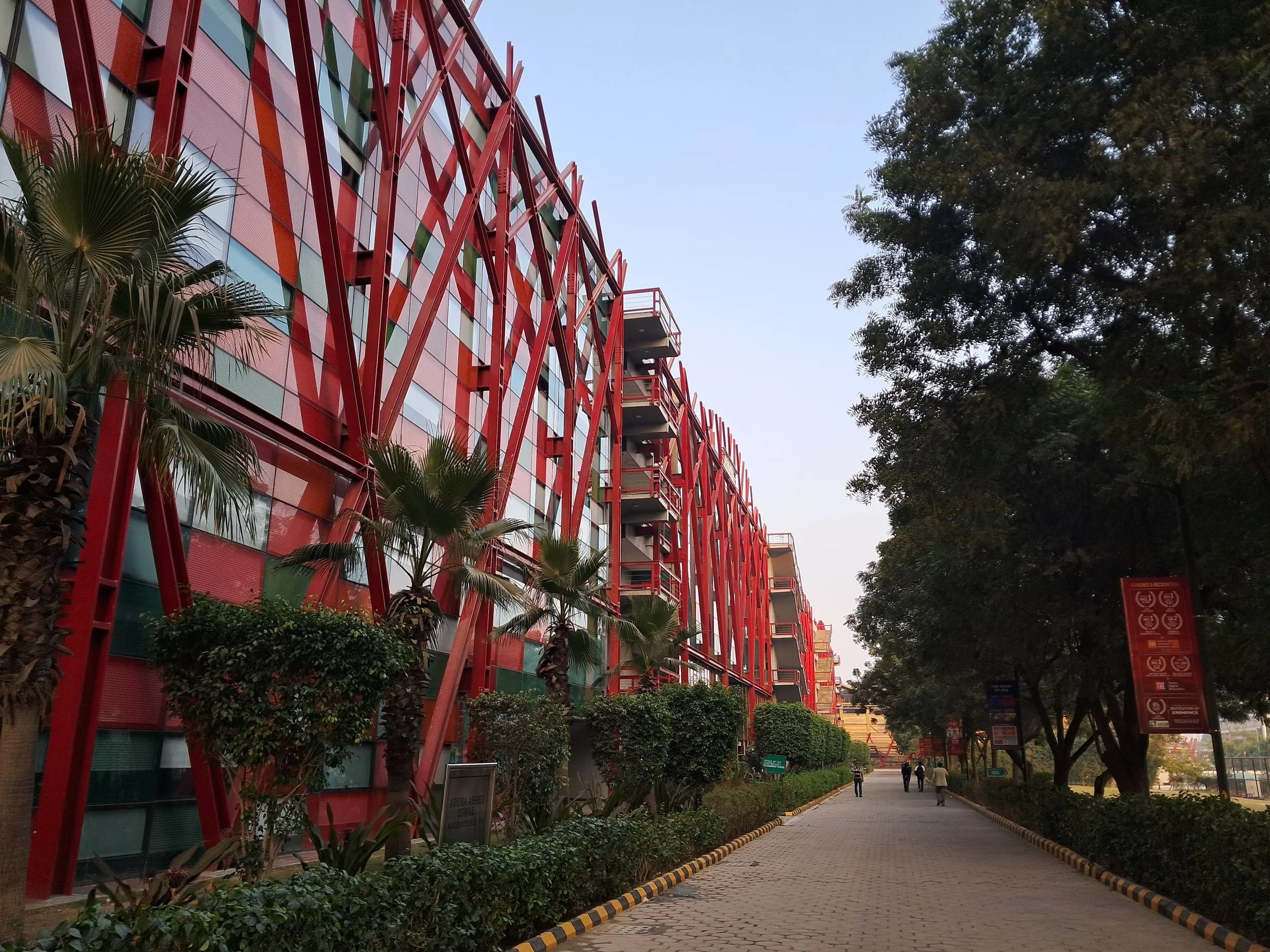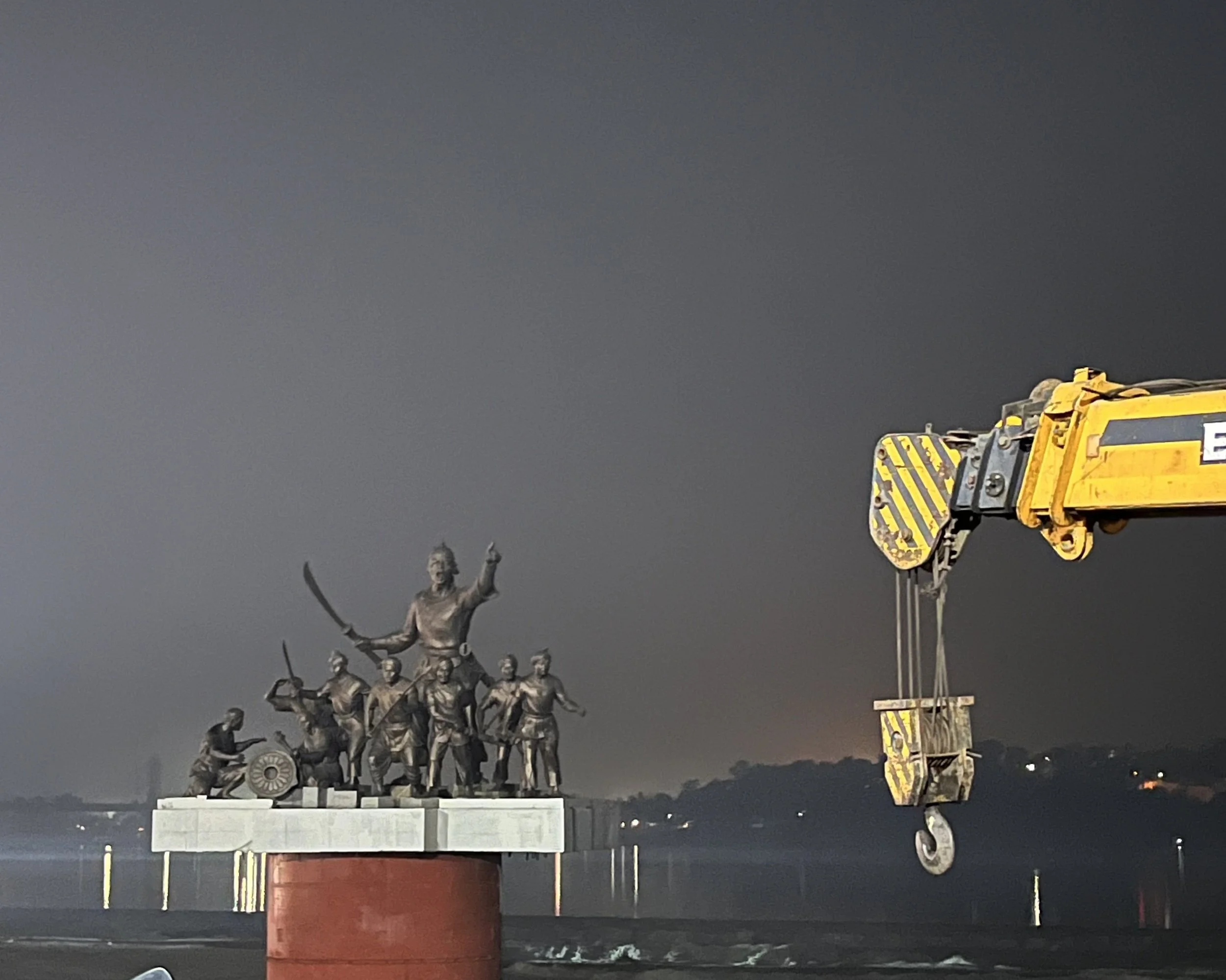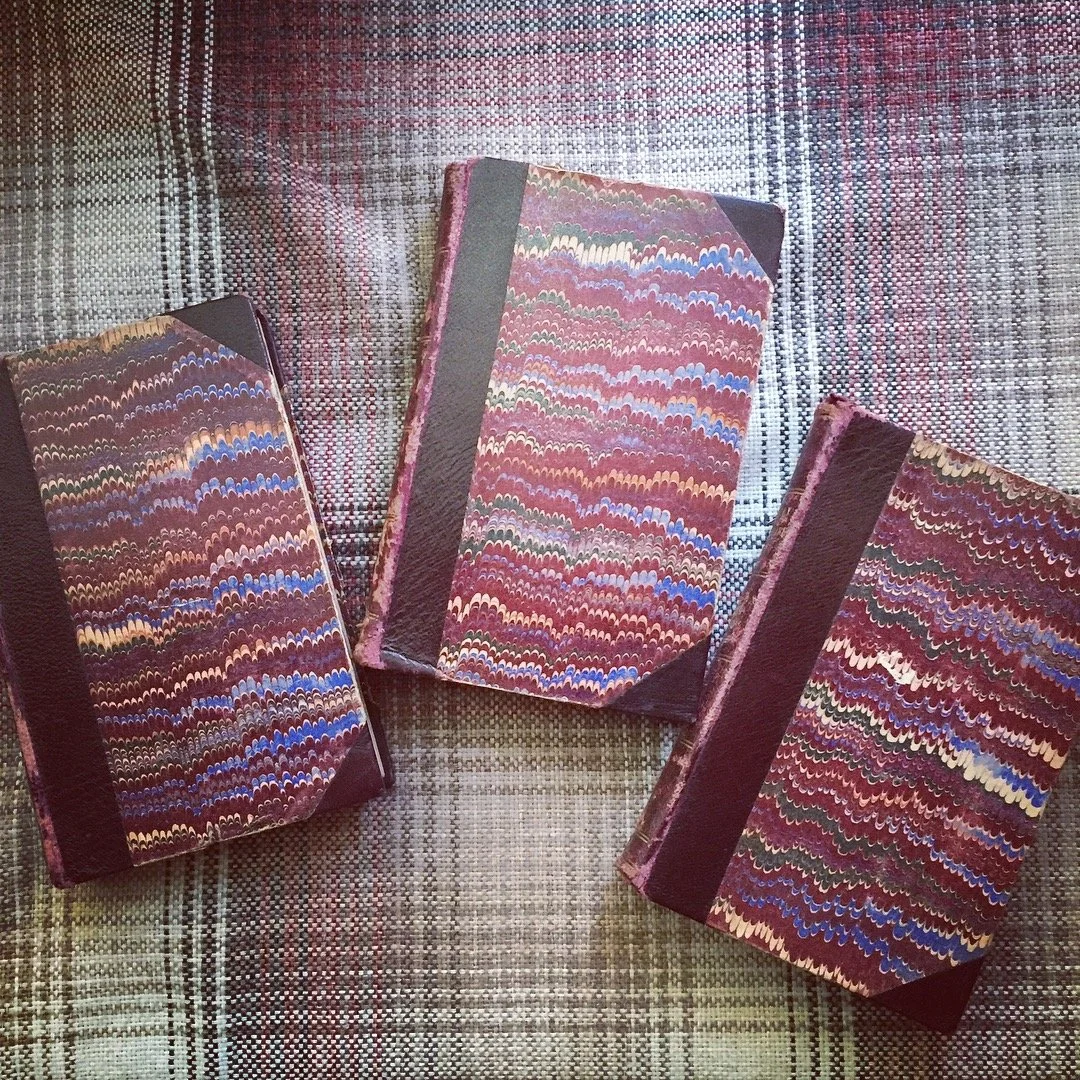India’s AI Governance Guidelines are here—But what of the Publishing Sector?
Without clear regulatory mechanism against AI data mining, Indian publishers have begun adapting voluntary frameworks. Madhuri Kankipati argues for the urgent need for the AI governance guidelines to set legislation and protect creative workers in a multilingual, digitally expanding nation.
The Politics of Female Longing in Fire and “Lihaaf”
In the art of filmmaker Deepa Mehta and writer Ismat Chughtai, Farah Ahamed explores themes of patriarchy, infidelity, and a testament to the desires of women.
“Storytelling Saves My Life Every Day” – An Interview with Sanjana Ramachandran
Sanjana Ramachandran’s debut Famous Last Questions investigates the clash of the personal with the sociopolitical. The author speaks about masking and unmasking herself, finding comfort in contradictions, and the flawed institutions of marriage, relationships, and work. By Karan Madhok
The Lunar Learning
Personal Essay: Who has access to knowledge? Ph.D. scholar Swathi Priya explores how multidisciplinary lenses of caste inclusion, neoliberal market, liberal ideology, mental health imperatives, and literature inform her larger research goals.
The City That Remains: Guwahati, and the Poetry it Inspires
Through memories, juxtapositions, and observations of the intricate, the poems about Guwahati in The Penguin Book of Poems on the Indian City (2025) portray a city that no longer exists, having metamorphosed into a new ‘synthetic’ space marred by politics and reckless urbanisation. By Ayaan Halder
“Revolutionary literature requires revolutionary politics”: An Interview with Meena Kandasamy
Acclaimed author Meena Kandasamy discusses the uncompromising and unapologetic resolve in her writing, confronting violence with art, and why activism is a form of love. By Saurabh Sharma
The Storm and the Storyteller: Arundhati Roy’s MOTHER MARY COMES TO ME
Through her memoir, Arundhati Roy revisits the foundry where her courage was forged, to the mother who didn’t prepare her for success, but inadvertently trained her to withstand both adoration and hatred to determine her survival. By Amritesh Mukherjee
Innocence Lost: Sarvesh Wahie’s Poetic Lament for Mussoorie
Written with understated, sublime beauty, Sarvesh Wahie’s Mussoorie Daze (2025) is a literary and philosophical text that examines the ontology of a lost Himalayan paradise, and the changing character of memory, self, solitude, and community. By Abhimanyu Kumar
Stitching Love Stories from a Torn Land: Mehak Jamal’s LOAL KASHMIR
Mehak Jamal’s Loal Kashmir (2025) is a witness, a tender archive of what it means to love in a region of conflict—how intimacy reshapes itself around checkpoints, how longing endures without signal bars, how the heart insists on ordinary joys in extraordinary times. By Shivani Patel
A portrait of Delhi in-between: liminal, restless, and uncertain
In Night in Delhi (2025), Ranbir Sidhu lays bare the city of shadowlands, and of lives pushed to the margins of visibility and worth, as it exists in continuum alongside the bright and aestheticized metropolis. By Anjali Chauhan
A Sensitive and Essential Partition Story—for Children
The picture book Roop and the River Crossing (2025)—written by Samina Mishra and illustrated by Shivam Choudhary—gently nudges its readers to reflect upon the ideas of home, belongingness, displacement, and what it means to be uprooted as one steps into the unknown. By Navtoj Khosla
The Dead Authors Society: Pritam, Manto, and the Betrayal of Posthumous Publishing
Amrita Pritam, Saadat Hasan Manto, and Kamala Das were all writers who, even in life, lived on the edge of taboo, scandal, and self-revelation. In death, stripped of agency, their voices have been reframed by the very people who claim to honour them. By Treya Sinha

